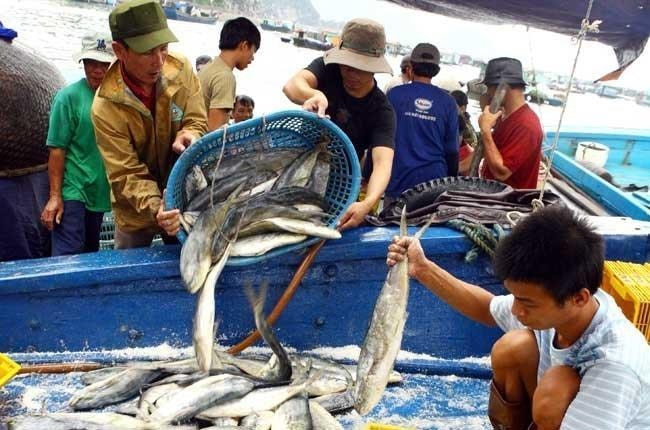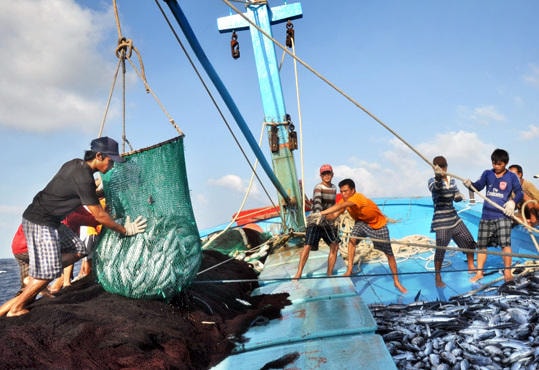Fines up to 1 billion VND for causing damage to aquatic resources
The revised Fisheries Law Project has just been passed by the National Assembly, increasing the fine to 1 billion VND for acts causing damage to aquatic resources.
The Draft Law on Fisheries (amended) has just been passed by the National Assembly with an approval rate of nearly 90% (437/441 delegates participating in the vote).
The Law stipulates that the Ministry of Agriculture and Rural Development shall preside over and coordinate with the Provincial People's Committees to organize the development and submit to the Prime Minister for approval a plan for the protection and exploitation of aquatic resources.
 |
| The State assigns management authority to community organizations in protecting aquatic resources. |
According to the explanation of the National Assembly Standing Committee (NASC), because according to the provisions of the draft Law on Planning, this planning belongs to the group of national sectoral planning, there is no planning for the protection and exploitation of aquatic resources of each locality.
The Law clearly stipulates the authority to grant licenses for aquaculture projects and the authority to allocate sea areas, the rights and obligations of organizations and individuals allocated sea areas for aquaculture, and cases of sea area revocation. The term of sea area allocation is increased to 30 years and can be extended to a maximum of 20 years.
The draft law also stipulates increasing the level of administrative penalties in the field of state management of fisheries for individuals to a maximum of 1 billion VND for acts causing damage to aquatic resources that are showing signs of serious decline, as well as acts violating recommendations of the European Commission (EC).
 |
| The term for allocating sea areas to organizations and individuals for aquaculture is increased to 30 years and can be extended to a maximum of 20 years. |
Regarding fisheries control, some opinions suggest only establishing a central fisheries control agency; others suggest establishing fisheries control agencies in provinces with large rivers and lakes; others suggest that the draft Law should only provide general regulations on fisheries control forces, while the organization system, policies and regimes should be left to the Government to regulate.
National Assembly deputies agreed to establish a fisheries control system including central fisheries control and fisheries control of coastal provinces and centrally run cities organized on the basis of requirements for protecting aquatic resources and local resources; assign the Government to specify details on the fisheries control system.
The Standing Committee of the National Assembly believes that the regulation of the fisheries inspection system in this way demonstrates flexibility in implementation, which does not require all provinces and centrally-run cities with seas to have fisheries inspection, nor does it necessarily have to be established immediately.
Fisheries inspection is formed on the basis of restructuring the local fisheries inspection force. The number of staff will be balanced within the total staff of the agricultural sector, thereby ensuring that the staff and apparatus do not increase according to the Party and State's policy on reforming the organization of the state administrative apparatus.
According to VOV
| RELATED NEWS |
|---|

